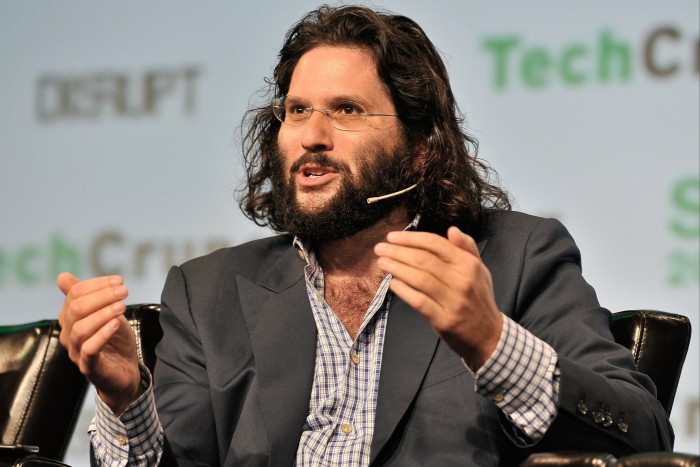Receive free Israel updates
We’ll send you a myFT Daily Digest email rounding up the latest Israel news every morning.
Eran Shir has helped create about 120 jobs in Israel since he co-founded Nexar, an automotive start-up, in 2015. But this year, as prime minister Benjamin Netanyahu has embarked on a bitterly contested drive to weaken the judiciary, he has decided to boost activities abroad instead.
“We’re investing more in our locations outside Israel and generating intellectual property outside Israel . . . and we’re actively looking at opening in other locations,” said Shir. “We haven’t done any incremental hiring in Israel this year, but we hired five people in Portugal,” he added, noting that the decisions were “heavily influenced” by the judicial overhaul.
Shir’s decisions reflect the growing alarm among Israeli tech entrepreneurs and business leaders about the economic implications of the overhaul being pushed by Netanyahu’s hardline coalition. The judicial changes have sparked seven months of mass protests, drawn criticism from the US, and prompted thousands of reservists to threaten to stop volunteering for duty.
For now, the fundamentals of Israel’s $500bn economy are solid. Growth is forecast at around 3 per cent this year, unemployment stands at 3.3 per cent while inflation, at 4.2 per cent, is low by global standards. Although numerous companies joined a brief strike last week, the economic disruption from the battle over the judicial changes has so far been relatively limited.
But the political gyrations have already affected Israel’s financial markets. As the crisis progressed, the shekel has lost around 8 per cent against the dollar, while the blue-chip index has barely risen. Morgan Stanley warned last week that the turmoil could feed into higher borrowing costs. Israel’s central bank said in April that it could knock an average of up to 2.8 per cent annually off the country’s economic output over the next three years.
Government officials insist the overhaul was needed to rein in an overly activist judiciary. Measures include a law passed last week that limits the top court’s ability to strike down government decisions, and plans to give the coalition greater control over the appointment of judges.
They have also played down concerns about the economic impact. After rating agencies Moody’s and Standard & Poor’s warned last week about the economic repercussions of the overhaul, Netanyahu and finance minister Bezalel Smotrich issued a statement drawing attention to big investments in Israel planned by chipmakers Intel and Nvidia, and insisting the country’s economy remained “very strong”.
But many economists, executives and investors see the proposed judicial changes as a recipe for erratic policymaking that could erode Israel’s business-friendly environment.
“Israel until now had good institutions, an array of checks and balances, separation of power, and an efficient bureaucracy. But all that is being targeted by the government,” said Itzchak Raz, an economist at the Hebrew University of Jerusalem. “The real concern is that this will be translated into a lower economic growth rate over a very long period.”
Nexar co-founder Shir said his biggest worry was the way that the government had been prepared to barrel ahead with the overhaul despite pushback from large swaths of Israeli society, and urgings from the US, Israel’s most important ally, not to enact the changes without consensus.
“The government demonstrated last week that they don’t care about the wellbeing of the Israeli economy,” he said. “They have a mission to grab power, and they’ll sacrifice anything they need in order to do that.”
Others in Israel’s tech sector — which accounts for more than a sixth of economic output and more than half of exports — have similar concerns. A survey last month by the Start-Up Nation Central think-tank found 68 per cent of start-ups had taken legal or financial steps, like moving activities or cash outside Israel, since the judicial battle began. Investment in the sector was 67 per cent lower in the first half of the year than in the same period a year earlier.
Some are betting that this reaction is overdone. Michael Fertik, founder of Heroic Ventures, a venture capital firm, said he had put more money into Israel this year than last, and that the fundamental reasons for investing in the country’s tech sector remained unchanged. “You have the same level of creativity, the same level of activity, the same level of ambition,” he said.
Other are less bullish. Nadav Zafrir, from Team8, which runs a start-up platform as well as a venture capital arm, said fundraising had “definitely” become more difficult, particularly from new investors.


“The strength and the depth and importance of Israel as a global innovation hub is so critical that, so far, most investors who’ve already invested in Israel have remained,” he said. But he also said he knew “for a fact” that some investors who have not yet invested in Israel had decided to “wait and see what happens”.
The longer-term question is whether the small steps towards relocating business activities made so far by Israeli companies — particularly in the highly mobile tech sector — become something bigger. Executives and investors said that, so far, this was not the case. But they also said that such an exodus was the biggest threat hanging over Israel’s economy.
“[The Israeli economy] is almost like an energy dependent economy that gets all of its sales from taking minerals out of the ground. The minerals in this case are entrepreneurs,” said Adam Fisher, managing partner at Bessemer Venture Partners, which has invested $1.5bn in Israeli start-ups.
“The only problem . . . is that while minerals can’t be taken out of the ground and moved elsewhere, entrepreneurs and employees can move. And that’s why high tech is screaming at the top of our lungs.”
Credit: Source link














